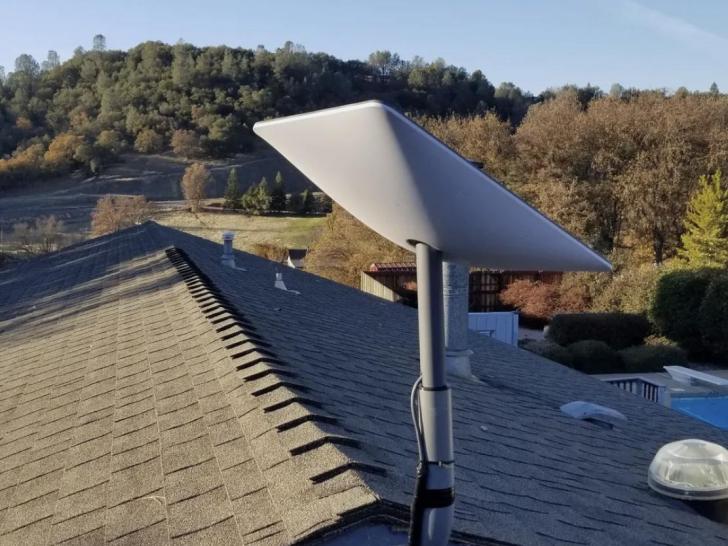News / National
Starlink users in Zimbabwe experiencing slow speeds
09 Oct 2024 at 15:55hrs |
13 Views

The Starlink internet service experienced significant slowdowns in Harare on Tuesday, with experts attributing the disruptions to high demand and congestion. Many users reported connectivity issues throughout the day, with some seeing download speeds drop as low as 1 Mbps, far below the typical range of 25 to 220 Mbps.
A Starlink service map revealed heavy congestion in Harare, where many devices were connected simultaneously. To manage the load, SpaceX, Starlink's parent company, limited the number of users in congested areas like Harare.
Robert Ndlovu, founder and CTO of Wozatel Communications, explained that the slow speeds were caused by oversaturation. "Each area can only support a certain number of satellite dishes before capacity is exceeded," said Ndlovu. He clarified that this wouldn't affect other service providers as Starlink operates at a higher frequency range than traditional mobile networks.
Ndlovu also noted that Starlink was designed for rural and underserved areas, not urban settings like Harare. However, due to poor connectivity in many urban areas of Zimbabwe, users have increasingly turned to Starlink. "It was meant for rural and peri-urban areas, but urban demand in Zimbabwe is pushing the system beyond its intended limits," he added.
The situation in Zimbabwe is unusual compared to other countries, where fibre internet is the primary choice for urban areas. In Zimbabwe, fibre coverage is limited, and some users have been forced to turn to Starlink as a primary provider rather than as a backup option.
Willard Shoko, a Bulawayo-based Starlink researcher, pointed out that Zimbabwe faces some of the highest latencies globally, ranging from 150 to 190 milliseconds. He said that congestion in Harare is adding to the service's struggles. "Starlink was never designed for cities, but in Zimbabwe, where internet costs are high, people see it as a cheaper alternative," Shoko noted.
Shoko further explained that a lack of ground stations in Zimbabwe has also contributed to the service issues, as ground stations improve the quality of satellite internet. He added that Starlink would function well as a backup for users with fibre, offering an alternative when fibre services go down.
As demand continues to grow, it remains to be seen how Starlink will address these early challenges in Zimbabwe.
A Starlink service map revealed heavy congestion in Harare, where many devices were connected simultaneously. To manage the load, SpaceX, Starlink's parent company, limited the number of users in congested areas like Harare.
Robert Ndlovu, founder and CTO of Wozatel Communications, explained that the slow speeds were caused by oversaturation. "Each area can only support a certain number of satellite dishes before capacity is exceeded," said Ndlovu. He clarified that this wouldn't affect other service providers as Starlink operates at a higher frequency range than traditional mobile networks.
Ndlovu also noted that Starlink was designed for rural and underserved areas, not urban settings like Harare. However, due to poor connectivity in many urban areas of Zimbabwe, users have increasingly turned to Starlink. "It was meant for rural and peri-urban areas, but urban demand in Zimbabwe is pushing the system beyond its intended limits," he added.
The situation in Zimbabwe is unusual compared to other countries, where fibre internet is the primary choice for urban areas. In Zimbabwe, fibre coverage is limited, and some users have been forced to turn to Starlink as a primary provider rather than as a backup option.
Willard Shoko, a Bulawayo-based Starlink researcher, pointed out that Zimbabwe faces some of the highest latencies globally, ranging from 150 to 190 milliseconds. He said that congestion in Harare is adding to the service's struggles. "Starlink was never designed for cities, but in Zimbabwe, where internet costs are high, people see it as a cheaper alternative," Shoko noted.
Shoko further explained that a lack of ground stations in Zimbabwe has also contributed to the service issues, as ground stations improve the quality of satellite internet. He added that Starlink would function well as a backup for users with fibre, offering an alternative when fibre services go down.
As demand continues to grow, it remains to be seen how Starlink will address these early challenges in Zimbabwe.
Source - The Chronicle
Join the discussion
Loading comments…
































